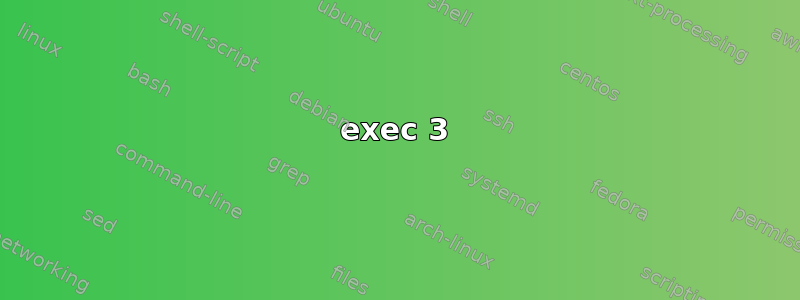
我知道exec可以在当前 shell 上进行 I/O 重定向,但我只看到如下用法:
exec 6<&0 # Link file descriptor #6 with stdin.
# Saves stdin.
exec 6>&1 # Link file descriptor #6 with stdout.
# Saves stdout.
据我了解,这<是针对输入流的,>是针对输出流的。那么它有什么exec 3<&1作用呢?
PS:我发现这个来自蝙蝠源代码
答案1
从bash manpage:
Duplicating File Descriptors
The redirection operator
[n]<&word
is used to duplicate input file descriptors. If word expands to one or
more digits, the file descriptor denoted by n is made to be a copy of
that file descriptor. If the digits in word do not specify a file
descriptor open for input, a redirection error occurs. If word evalu‐
ates to -, file descriptor n is closed. If n is not specified, the
standard input (file descriptor 0) is used.
The operator
[n]>&word
is used similarly to duplicate output file descriptors. If n is not
specified, the standard output (file descriptor 1) is used. If the
digits in word do not specify a file descriptor open for output, a re‐
direction error occurs. As a special case, if n is omitted, and word
does not expand to one or more digits, the standard output and standard
error are redirected as described previously.
我做了一些调试strace:
sudo strace -f -s 200 -e trace=dup2 bash redirect.sh
为了3<&1:
dup2(3, 255) = 255
dup2(1, 3) = 3
为了3>&1:
dup2(1, 3) = 3
为了2>&1:
dup2(1, 2) = 2
看起来它的作用与将 stdout 复制到文件描述符 33<&1完全相同。3>&1


